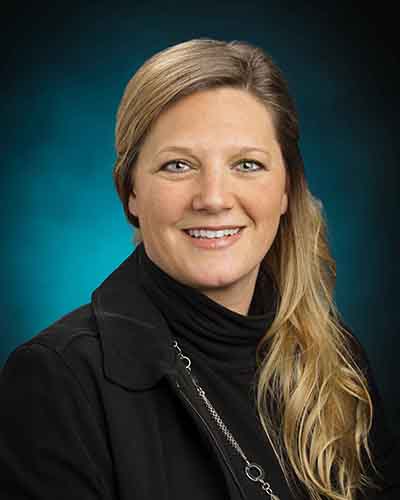Meet Andrea Braundmeier-Fleming, Ph.D.
Written by Klementina Fon Tacer for Native American Heritage Month

In honor of Native American Heritage Month, Diversity Committee member Dr. Klementina Fon Tacer sat down with SSR member Andrea Braundmeier-Fleming, Ph.D. to discuss her career and the influence of her Native American heritage.
1. What is your current position, and what does it entail?
Associate Professor at Southern Illinois University School of Medicine. Department of Medical Microbiology, immunology, and Cell Biology. Department of Obstetrics and Gynecology. My job can be best described as juggling forward progress and completion of my active research projects, managing graduate student training, and curriculum, directing the second year of our medical student curriculum, and being involved in community awareness of the great science going on at our institution!
2. Can you talk a little bit about yourself, where are you from? What first attracted you to the world of science? And how did you get to be in your current position?
I grew up in Highland, Illinois (just 25 miles east of St. Louis, Missouri). My father was a professor in Physics at Southern Illinois University at Edwardsville. My brothers and I learned at a very young age how scientific discovery affects our daily lives and how important it is to always keep learning! I developed a strong curiosity and wanted to know how EVERYTHING worked at a very young age and was never afraid to ask WHY? As I grew older, I found that my curiosity was really targeting how our bodies worked and why different diseases developed. While I didn’t want to treat people, I wanted to know to understand more about sickness and healthy states and how different treatment strategies work to cure different disorders.
3. What impact has the pandemic had on your daily activities and your research?
The pandemic has definitely added more stress on my daily career activities and research. Most of my research involves working with human subjects over a long period of time. When the pandemic hit initially, we were unable to collect samples on patients at the correct time frames because patients were not able to see their physicians or that their surgeries were canceled. This created gaps in our data collection. It also caused stress because as an educator, I had to shift the format that I taught my courses (both graduate and medical) in a very short amount of time. As a director of the curriculum, many people looked to me to solve problems that I had no previous experience in facing. However, with support from an incredible research team and the curricular team, we were able to come up with some very innovative answers to unprecedented problems.
4. Have you gained any valuable lessons from life during the pandemic?
Absolutely! Not only was my professional life disrupted by the pandemic, but the pandemic also caused great stress in my personal life with my spouse and my children. The most valuable lesson that I learned from the pandemic is to really listen to both verbal and non-verbal language from other people. I really needed to pay attention to the actions of others and do daily check-ins on how my loved ones, co-workers, and students were doing. Many things that challenged me on a daily basis I could not control or fix, and I had to learn how to shift out of the “problem solver” to the “listener and empathizer”. The second most important thing that I learned is that I need to create “me time”. If I am not OK, then I cannot be there for everyone else.
5. What are you most excited to do over the next year?
The thing that I am most excited to do over the next year is to be able to travel more….HOPEFULLY!
6. What words of inspiration would you like to share with the future generation of scientists?
To future scientists, my words of inspiration are that learning never gets old. Keep your curiosity and let that drive your motivation to keep searching for answers. Also never forget to share your knowledge and that it is ok if someone has a different opinion. Respectful debate is what keeps science moving forward. Never shy away from an intellectual challenge. Use your VOICE!!
7. Are there ways in which you think your heritage has affected your perspective or career trajectory?
I am proud to have Native American, German and Swiss heritage. Being raised by some very strong individuals, I learned the power of perseverance. My Native American grandmother taught me that the body is a powerful thing and through harmony with different earthly elements we can heal ourselves without needing to necessarily take “pills”. She taught me that pain can be eased by stretching and movement, we did Yoga every day. That our immune system could be enhanced through what we eat, massage, and what we drink. Finally, I was taught that to achieve happiness we must choose to see the good in all people and situations. There are bad people and bad things do happen but if we cannot find something good in each day, then the day is wasted and a wasted day is never a good thing. These lessons have helped me stay positive throughout grueling times and long stressful days. These lessons have also helped me focus on developing solutions instead of only seeing the problem and have eased my frustration when encountering difficult situations.
Thank you, Andrea, for sharing your story with us, and all the best in your future endeavors!

